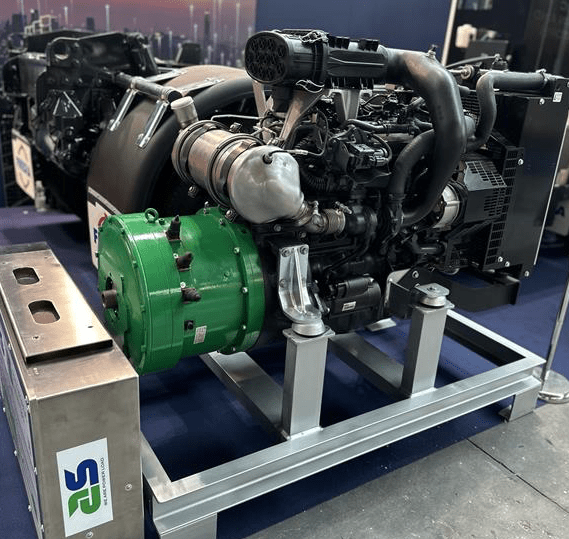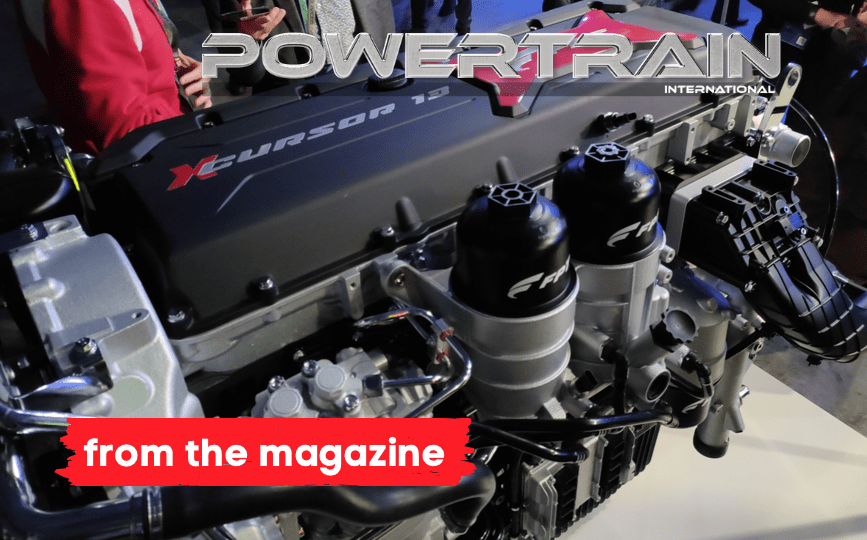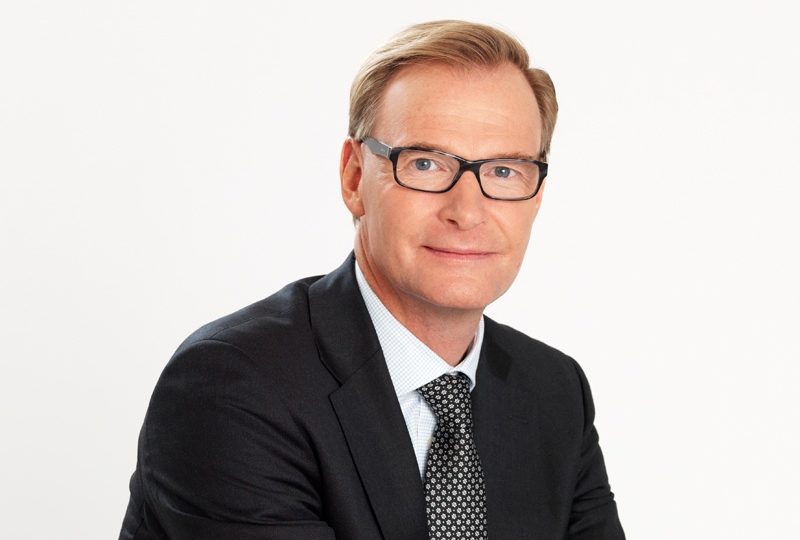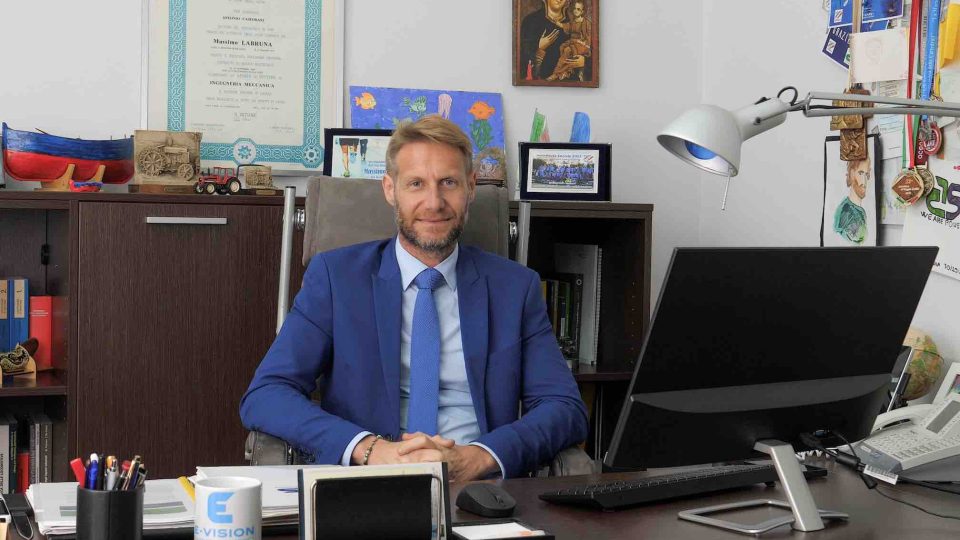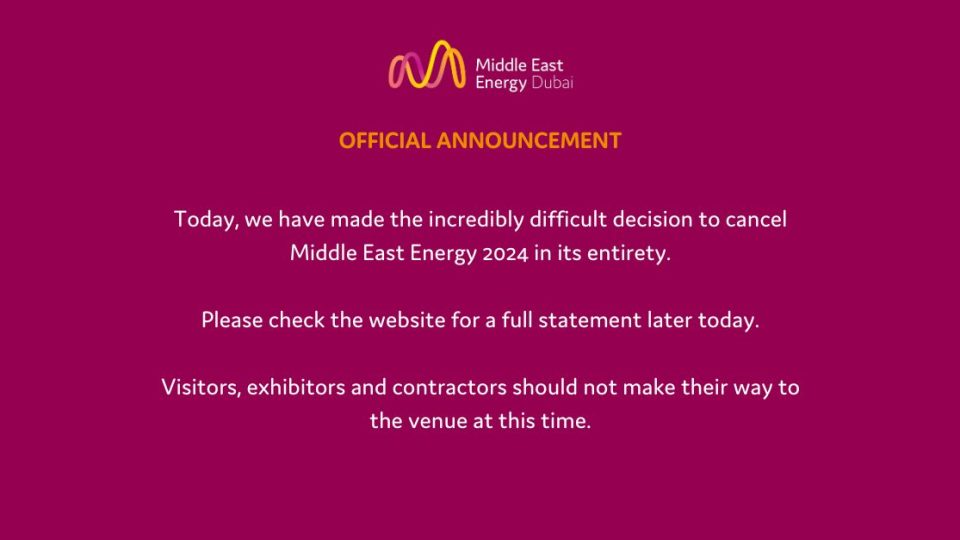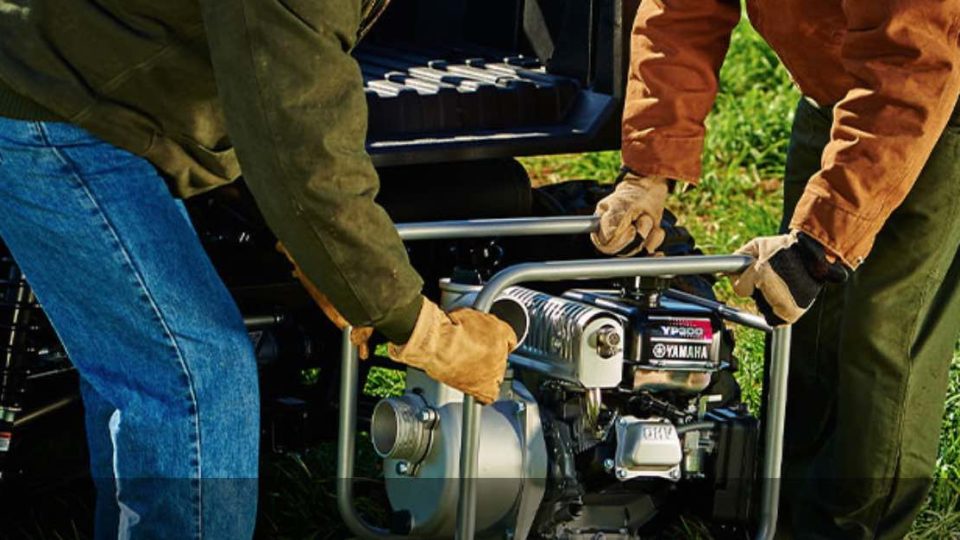Thierry Panadero, Vice President of Case IH and Steyr
At Sima in Paris, the Vice President of Case IH and Steyr told us about the new organization at CNH Industrial and how the brands he leads focus on sustainability and innovation to establish themselves in an increasingly global and competitive market. Recently CNH Industrial presented a reorganization at the top with Hubertus M. Muehlhaeuser […]
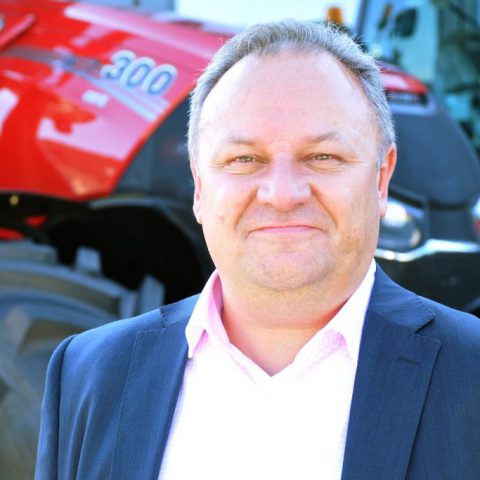
At Sima in Paris, the Vice President of Case IH and Steyr told us about the new organization at CNH Industrial and how the brands he leads focus on sustainability and innovation to establish themselves in an increasingly global and competitive market.
Recently CNH Industrial presented a reorganization at the top with Hubertus M. Muehlhaeuser as CEO of CNH Industrial, Derek Neilson leading the agricultural division and Brad Crews brand president. What changes for Case IH?
Having the new CEO of CNH Industrial here at Sima for the first time is a great help and certifies the importance of the agricultural division within the group. Now we have a managing director who represents us, able to testify who Cnh Industrial is and what it is doing in the various sectors of competence, including agriculture.
DEREK NEILSON HEAD OF AGRICULTURE FOR CNH INDUSTRIAL
The objective is to better focus on the targets and strategies of the various brands based on future industrial trends. The new organization, with the creation of the agricultural division led by Derek Neilson, aims to make the structure clearer and more fluid, freeing it from the previous regional logic that grouped all the product lines. This makes it possible to accurately identify the needs of the various sectors by directing the necessary resources in the best possible way.
Brad Crews, the new brand president, has a very wide knowledge of the brand and of the agricultural equipment market, as well as having a long history within the group and being American as the brand he leads. Therefore it was a logical choice, since Case IH business is done for over 50 percent on American and Canadian soil.
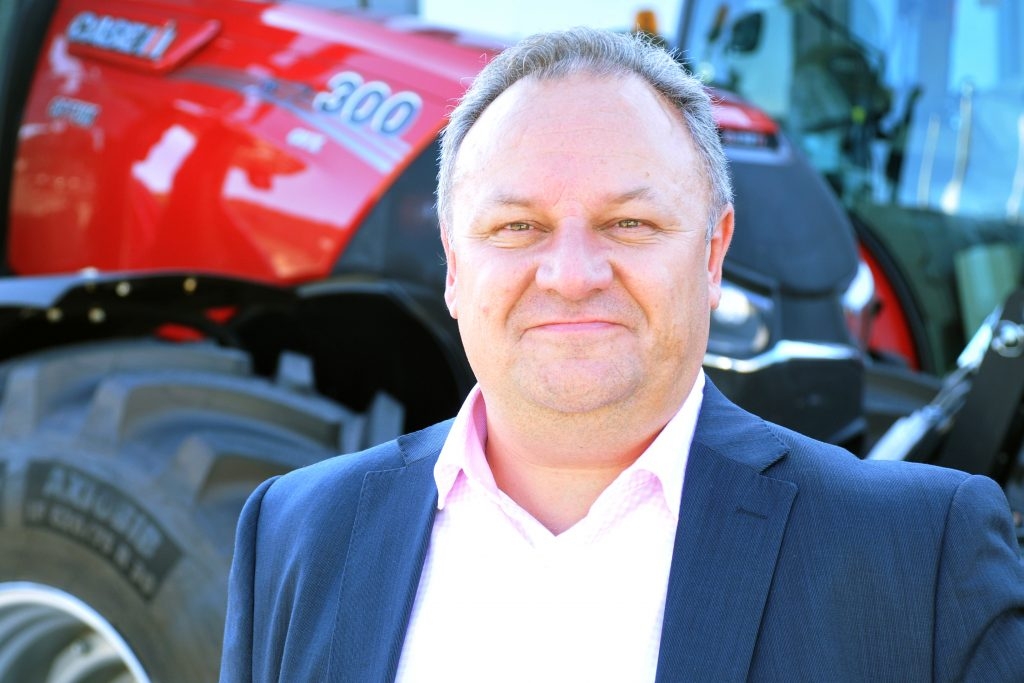
In the main European markets (France, Germany, Italy, Poland), Case IH is growing despite the decline in overall registrations. What is the recipe for success?
Case IH is a brand with enormous potential, even from an emotional point of view.
In the family history of almost every farm there is at least one Case IH tractor or combine. Probably in the last few years we have not been sufficiently aware of the strength of our brand approaching, as a consequence, the market too softly.
Today we know what is the role and potential of Case IH and what are the goals to be transmitted to the sales network. Thanks to our product, technology and support offer, we can certainly continue to grow.
CNH INDUSTRIAL NEW CEO: HUBERTUS M. MUHLHAUSER
What do you expect for 2019?
From the beginning of this year the business is slightly in pain due to the drop in production in 2018 caused by bad environmental conditions.
The hope is that there will be an improvement in yields and that prices will remain stable.
Here at the fair we were able to confront with customers and their approach remains moderately positive. They are obviously not enthusiastic but trust in the return of favorable conditions.
I do not think therefore it is the case to speak of crisis, we are in a situation definitely of decline in level of registrations but we must not forget the increase of the demand of power, a trend in growth from year to year.
Throughout Europe the most requested Case IH tractor is the Puma 240 Cvx. This is why in a global market, although expected to decline slightly for 2019, we expect growth of our brand that has an excellent vocation for high-end products.
The markets that are of greatest concern are England for Brexit and Turkey for the political and economic crisis, what repercussions do you foresee for your business this year?
Case IH produces long-established tractors in Turkey. The devaluation of the local currency obviously damages the internal market but favors exports, so the situation is all in all under control. As for the UK, today it is difficult to predict the real effects of Brexit. It should however be considered that traditionally the British market is very professional and less subject to the fluctuations that characterize other European realities; not surprisingly, despite political uncertainty, last year registrations in Great Britain held, in contrast with what happened in the other main markets of the Old Continent.
I honestly don’t think England can afford to lose CAP subsidies, but the approach of British farmers has always been rather optimistic.
When they talk about it they take as an example what happened in New Zealand, where the state has already given up farming subsidies for 10 years and the farmers have managed to create their own self-sufficient business model. We will therefore see what will happen, even if at the group level, by producing in the UK, we already have our countermeasures ready.
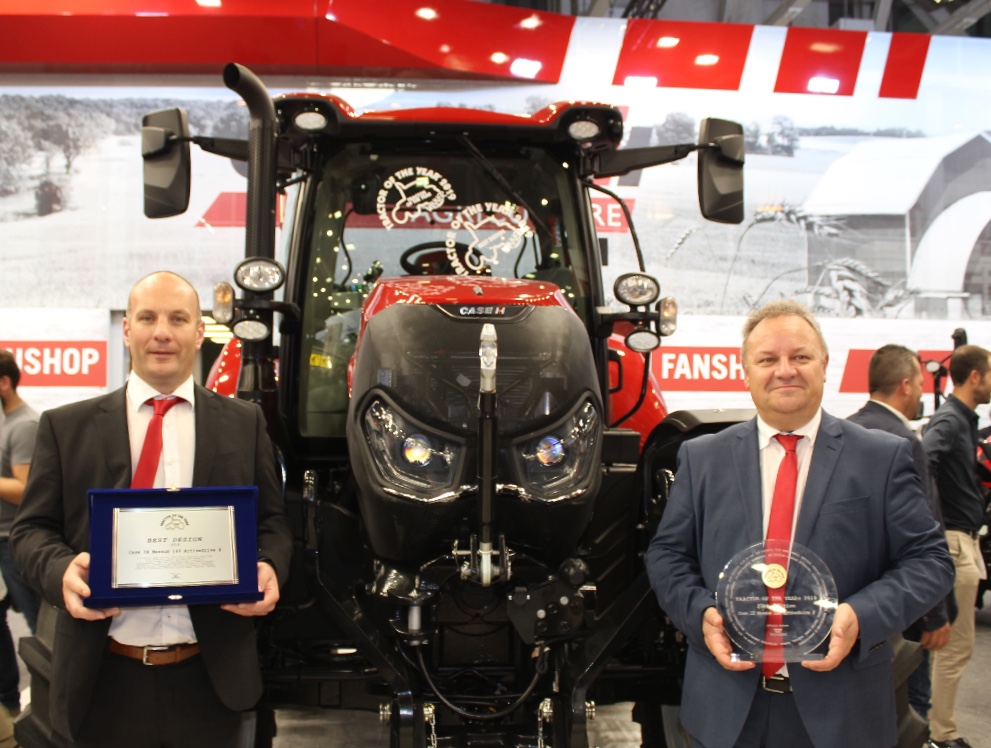
Do you expect real competition from Chinese and Indian groups that are entering European markets?
Obviously yes, but this does not concern us particularly since we are already part of the productive reality of those countries. In India we have an excellent position in the local market as well as producing most of the CNH Industrial tractors sold in Africa. Similarly, we have been producing and selling tractors in China for many years. CNH is a global manufacturer capable of competing with local players both on domestic markets and on other emerging markets such as Africa. In Europe we talk instead of an absolutely different technological demand. Here there is no room for low quality products. Of course, many simple tractors can be sold at the endowment level but they must still be as efficient and reliable as our Puma X. It is very difficult for companies that do not make volumes in Europe to reach the minimum level required without exploiting economies of scale.
There is also the question of the adaptation of the engines, which for those coming from non-broadcast areas turns into a considerable outlay. From the point of view of product quality, the companies that make tractors are certainly more competitive by assembling components supplied by other companies (engines, transmissions, cabins and so on). But in this case it is very difficult to achieve margins that allow investing in research and development to follow the directions, for example, of digitization.
The future of the sector is always linked to the development of continuous transmissions or is there a reversal of the trend towards mechanical transmissions, perhaps more sophisticated like your “dual clutch”?
I think our ActiveDrive 8 is the most advanced mechanical transmission on the market today, capable of guaranteeing maximum benefits in terms of comfort and reduced consumption.
The future of powershift is therefore for us the dual clutch. On the other hand, the CVX offers much more flexibility by talking directly to the engine to ensure the best response in every application, as well as being unbeatable in road transport. The right answer must be considered within the specific need of the individual farmers, so we will continue to push in both directions.
Hydrogen, methane or electric tractors. What experiments are you carrying out?
Obviously the development of alternative and renewable fuels remains one of the priorities of CNH Industrial. We are working on methane, hydrogen and the creation of hybrids. Currently, with the technologies available, a full electric tractor cannot be proposed on the market. With the power density it requires it would have an autonomy of around 10 minutes, except if you charge it with three or four tons of batteries.
I believe that electricity will be used to replace hydraulics in the handling of equipment, as it is more efficient. We are therefore working on everything, but the speed of introduction on the market also depends on the accommodation capacity of the end customer. If the consumer is not ready to accept the change it makes no sense to speed up the pace. In some sectors things are changing very quickly. An example is the introduction of gas into the truck sector; until last year no methane vehicles were available and today they are starting to sell especially for logistics in the cities. Whether it’s right or not, there are conflicting opinions on the subject, today the attention focuses on diesel and we can’t help thinking of alternative solutions, among which methane is the most advanced in terms of development level today, also for application on tractors.
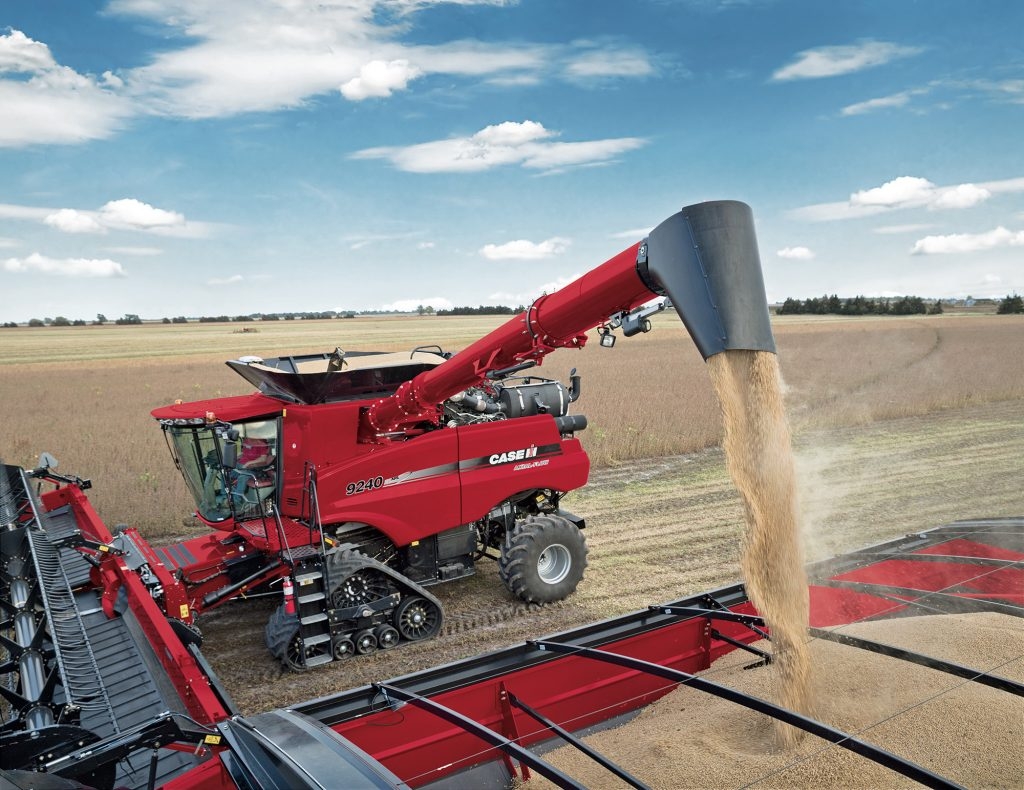
What is a sustainable tractor for you?
Sustainability, in my opinion, stands on three main pillars. The first one obviously concerns the containment of emissions and consumption, but also the energy efficiency of the vehicle through technologies that allow as much as possible a reduction in dispersion and absorption. In this sense, as mentioned above, the electrification of some components is very interesting.
The second pillar concerns the safeguarding of the operator, who must be put in the condition of working in the safest and most comfortable way possible.
The third pillar concerns the machine/user interface or the development of technologies that can be used by every type of customer. It makes no sense to create digital systems or automatisms that are not understood and consequently remain unused.
What’s new for Agritechnica?
There will certainly be some interesting new entries but I can’t say now which ones because some of them might not be ready for next autumn.
Certainly there will be the new Magnum recently presented in the United States.
What is Steyr’s future?
In Spain, as it has already happened in other countries (Poland, Latvia, Serbia), an “ad hoc” structure was created to push the Steyr brand.
The motivation is to answer to the demand of great equipment manufacturers and distributors who want to remain independent from the big names in the tractors industry.
Steyr is a small brand able to offer all the technology required today by modern implements.

